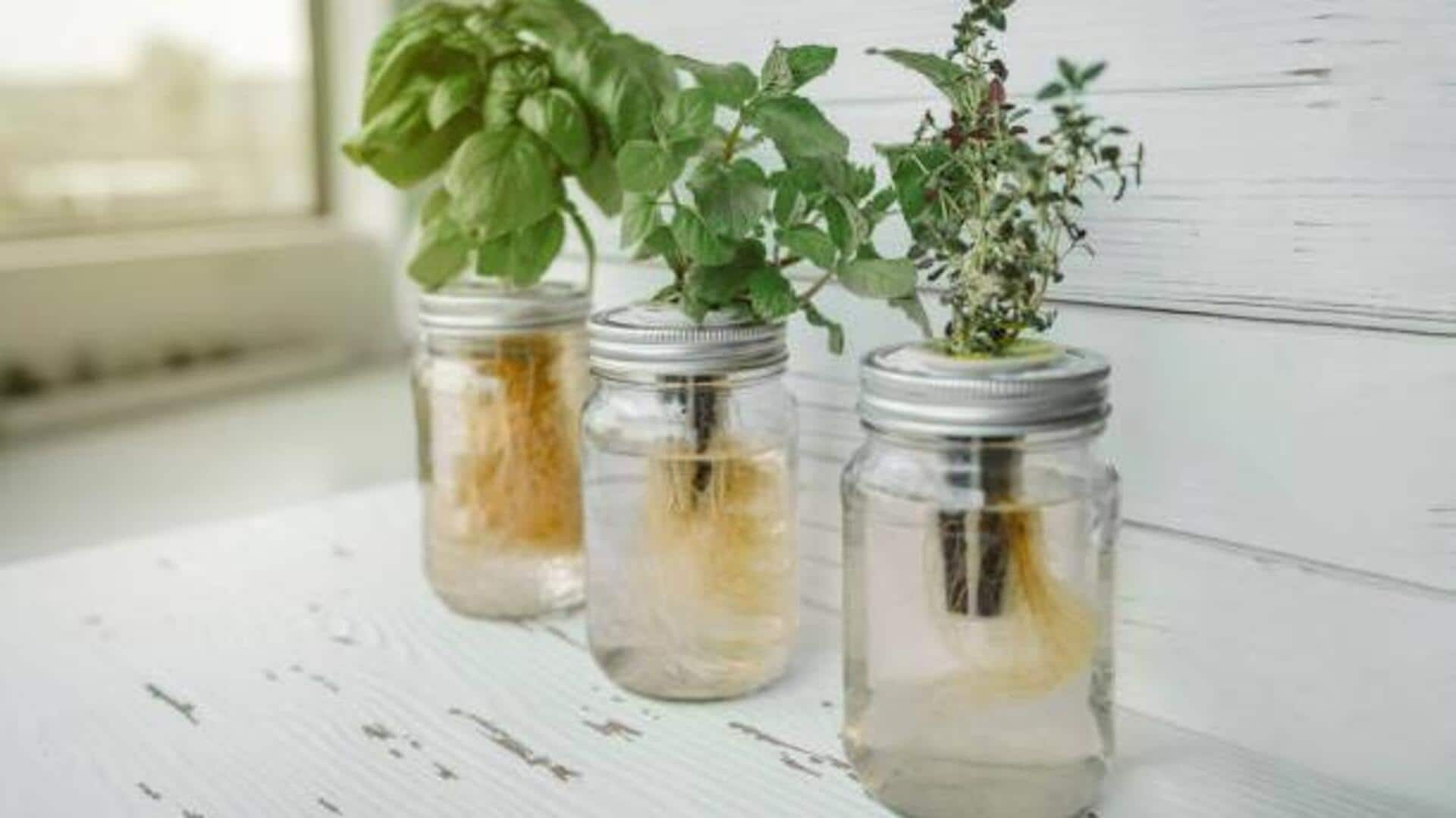
DIY hydroponics for indoor plants: 5 tips
What's the story
Hydroponics provides a soil-free way to grow plants indoors, making it the ideal option for urban dwellers and gardening enthusiasts. It involves growing plants in nutrient-rich water, making space and resource utilization highly efficient. With the right setup, anyone can have a thriving indoor garden with the help of hydroponics. Here are some simple steps and tips to setup your own DIY hydroponic system at home.
System selection
Choosing the right system
Selecting the appropriate hydroponic system is the key to success. As a beginner, you could start with Deep Water Culture or Wick Systems as they are simple and inexpensive. These systems need little maintenance and are perfect for small spaces. Consider the available space, budget, and type of plant you want to grow when choosing your system.
Materials list
Gathering essential materials
To set up a basic hydroponic system, you'll need some essential materials such as containers or buckets, net pots, growing medium such as clay pellets or rock wool, an air pump (with air stones) for oxygenation, and nutrient solutions suited for your plants. These are easily available at gardening stores or online retailers.
Setup process
Setting up your hydroponic garden
Start by putting together your selected system according to instructions for that particular design. Make sure your containers are clean and free of contaminants before adding water mixed with nutrients. Put plants in net pots filled with growing medium, ensuring roots have access to nutrient solution below them.
Growth monitoring
Monitoring plant growth
Regularly check pH levels of the nutrient solution with a pH meter. Most plants thrive in slightly acidic conditions between 5.5 and 6.5 pH range. Monitor water levels daily, since evaporation can affect the concentration of nutrients with time. Replenish as needed, while maintaining the balance required by specific plant species being grown indoors through this method.